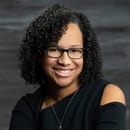Sometimes, the acronym for the queer community seems ever-expanding. Even when typing out LGBTQIA+, the plus sign sits there, hinting at all the things you might still be missing. Whether you identify as part of the queer community or not, you’re bound to have questions, and all of us can be better allies to those with differing identities. And, if you’re anything like me, trying to have a conversation with someone about their experience can be super awkward, whether you’re the one asking questions or being asked. Starting with self-education can take some of the pressure off both members of the conversation.
No experience is the same, even if they’re checking similar boxes. Before you get lost on an internet rabbit hole trying to figure out what all these new letters and words mean, know that there are tons of resources out there to educate yourself. And one of the best ways to do that is by reading.
Many books on queerness or the queer experience are limited to the author’s personal experience. Still, reading one person’s story or historical synopsis can open up your eyes to the complexities of everything we aim to celebrate during June. From gender to sexuality, memoir to history, these six books each offer a different look into the diversity of the LGBTQ+ community.
- This Book Is Gay by Juno Dawson
-
This book is… well, gay, but also funny and informative. With an educational angle aimed to answer questions for allies, community members, and questioning folks alike, this book is a great collection of personal stories and advice. This book is more focused on gay/lesbian individuals, and is a great read.
- Gender Queer: A Memoir by Maia Kobabe
-
If you follow book bans at all, this title might sound familiar to you. The American Library Association ranked Gender Queer as the most banned book of 2023. A memoir in graphic-novel format, Gender Queer follows Kobabe’s journey of self-discovery through adolescence. For an ally, this is both a great introduction to getting to know what a queer person’s journey can look like. Plus, reading banned books is always a great idea.
- The T in LGBT: Everything You Need to Know About Being Trans by Jamie Raines
-
English Youtuber Jamie Raines (Jammidodger) became a bestseller with his first book. I discovered his YouTube channel a few years before his book came out, and his commentary is always thoughtful and funny — as it should be. The T in LGBT covers all sorts of topics related to trans identity. Raines combines facts with stories from himself and others and includes sources to continue your learning. If you want something that combines the personal with in-depth research, try this one out!
- Queer: A Graphic History by Meg-John Barker and Jules Scheele
-
Looking for a history book that feels less like history? Try Queer, a non-fiction graphic novel. Breaking down ideas around biology, gender, and sexuality by looking at scientific research and philosophy, Queer aims to reframe your understanding of the world and introduce queer theory. With less of a memoir focus, this book will give you more “teaching” than storytelling — but in a unique way.
- Contesting Intersex: The Dubious Diagnosis by Georgiann Davis
-
This book is focused on the little-known I in LGBTQIA. While intersex is much more firmly biological than social, intersex people can experience gender trouble in similar ways to those who fall under the trans umbrella. (But note that intersex is not the same thing as trans!) Featuring interviews, historical analysis, and personal narratives, Davis aims to demonstrate the role of the medical community in problematically defining the sex/gender binary and its impact on this overlooked population.
- ACE: What Asexuality Reveals About Desire, Society, and the Meaning of Sex by Angela Chen
-
Asexual journalist Angela Chen gives a great look at asexuality through her book, which mixes information with personal accounts from Chen herself and interviewees. In my experience, asexuality is one of the lesser-known sexualities, and this was a great book to give me more language to speak about my experience as an ace person. By tackling some of the ways gender stereotypes and feminism impact views on asexuality, Chen brings into question the way we view sex and sexual desire as a default setting — and the ways embracing the ace spectrum can make us all a bit more visible.
Whether you read one book on this list or all of them, don’t let your education stop this month! Many of the books on this list offer other educational resources and further reading to get different perspectives and new information.








